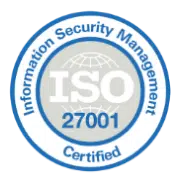Paradiso LMS, on the other hand, is a cloud-based corporate learning management system (LMS) designed for enterprise learning. It comes with a comprehensive set of built-in features, including AI-driven personalization and multi-tenant capabilities, making it a turnkey solution for complex, multi-audience training needs.
This detailed comparison will help you understand the strengths and limitations of each platform, enabling you to make the best choice for 2025 and beyond.
What is Moodle?
Moodle (Modular Object-Oriented Dynamic Learning Environment) is a free, open-source learning management system initially designed to support educational institutions, such as universities and schools. It is widely popular for its flexibility in course design, extensive plugin ecosystem, and a vibrant global community of developers and educators who continuously improve its features.
Moodle can be self-hosted on your servers, giving complete control over customization and data. Alternatively, you can use MoodleCloud, a hosted SaaS version that offers limited customization but reduces technical overhead.
While Moodle excels in academic settings, many organizations adopt it for corporate training when they require a highly customizable environment and have in-house IT resources to manage it.
Who Should Use Moodle?
- Educational institutions such as universities, colleges, and K-12 schools
- Nonprofit organizations with dedicated IT teams
- Organizations that need deep, granular customization of their LMS environment
- Institutions are committed to open-source software philosophies and community-driven innovation.
However, Moodle may not be ideal for fast-growing corporate environments seeking ready-made enterprise features and quick deployment.
Key Benefits of Moodle
- Free and open-source: No upfront license fees, reducing costs for organizations with technical capacity
- Highly customizable: Supports thousands of plugins to add or develop specialized features.
- Strong community support: Continuous improvements from a global network of users and developers
- Standards compliance: Supports SCORM, xAPI, and LTI, ensuring compatibility with eLearning content
- Flexible hosting options: Choose self-hosting for control or MoodleCloud for convenience
What is Paradiso LMS?
Paradiso LMS is a corporate-first, cloud-based learning platform designed to meet the needs of enterprises looking to deliver scalable, multi-audience training programs. It supports internal employee development, partner enablement, customer education, and compliance training within one platform.
Paradiso LMS is built with business-focused features, including built-in course authoring, gamification, e-commerce, and AI-powered personalization. It also offers multi-tenant architecture, enabling organizations to manage training for clients, franchises, or departments with separate portals.
Designed for rapid deployment and seamless integration, Paradiso LMS supports over 100 third-party tools, including popular HRMS, CRM, and ERP systems. Its mobile-ready design ensures learners can access training anytime, anywhere.
Who Should Use Paradiso LMS?
- Large enterprises running complex, multi-audience learning programs
- Companies with regulatory compliance or extensive onboarding requirements
- Learning & Development teams manage external portals for clients or partners
- Organizations that want an all-in-one solution with built-in features, minimizing the need for third-party plugins
Key Benefits of Paradiso LMS
- Enterprise-ready out of the box: No need for additional plugins or heavy customization
- Multi-tenant portals: Separate learning environments for clients, partners, or franchisees
- Built-in course authoring and gamification: Simplifies content creation and boosts learner engagement
- Extensive integrations: Connects with Salesforce, SAP SuccessFactors, BambooHR, MS Teams, and many more
- AI-driven personalization: Tailors content recommendations and insights to individual learners
Which is better for your needs: Moodle or Paradiso?
Feature Comparison
| Feature | Moodle | Paradiso LMS |
|---|---|---|
| Open Source | ✅ Yes | ❌ No |
| Hosting & Maintenance | Self-managed or MoodleCloud | Fully managed (SaaS) |
| Course Authoring Tools | ❌ External plugins | ✅ Built-in |
| Gamification | ❌ Plugin-based | ✅ Native |
| Mobile App | ✅ Moodle App | ✅ Branded mobile app |
| Multi-Tenant Capability | ❌ Not native | ✅ Yes |
| AI Personalization | ❌ No | ✅ Yes |
| eCommerce Integration | ❌ Plugin-based | ✅ Native |
| SCORM/xAPI/cmi5 Support | ✅ Yes | ✅ Yes |
| Reporting & Analytics | ❌ Basic (plugin-driven) | ✅ Advanced |
| Language Support | ✅ Multilingual | ✅ Multilingual |
Integrations and Third-Party Tools
Moodle Integrations
- Google Workspace, Microsoft 365
- Zoom, BigBlueButton
- LTI tools, H5P, SCORM/xAPI
- Optional plugin-based CRM & HRIS integrations
Paradiso LMS Integrations
- Salesforce, Zoho, HubSpot
- SAP SuccessFactors, BambooHR, ADP
- Shopify, WooCommerce
- MS Teams, Zoom, WebEx
Verdict: Paradiso offers plug-and-play integrations for corporate workflows, whereas Moodle may require custom development.
Pricing Comparison
| Pricing Category | Moodle | Paradiso LMS |
|---|---|---|
| Initial Cost | $0 (self-hosted) | Subscription-based, starting fee |
| Hosting & Support | Paid via Moodle Partners or self-managed | Included in the subscription |
| Add-on Features | Paid plugins or dev costs | Included (LXP, gamification, analytics) |
| Total Cost of Ownership | Lower for small-scale use; rises with complexity | Predictable fixed pricing with fewer hidden costs |
Insight: Moodle’s upfront cost is lower, but maintenance, plugin licenses, and customization costs can add up as your needs grow. Paradiso LMS provides more value and predictable expenses for enterprise-scale deployments.
Data Privacy & Security
| Security Feature | Moodle | Paradiso LMS |
|---|---|---|
| GDPR Compliance | ✅ Yes | ✅ Yes |
| ISO 27001 Certification | Depends on a hosting provider | ✅ Yes |
| SOC 2 Compliance | ❌ Not standard | ✅ Yes |
| HIPAA Readiness | ✅ With configuration | ✅ Native |
| Enterprise SLA | ❌ Not default | ✅ Yes |
Pros and Cons: Moodle vs Paradiso LMS
Moodle
- Pros:
- Free and open-source, minimizing licensing costs
- Highly customizable through a vast plugin ecosystem
- Strong community support, especially in academia
- Cons:
- Requires technical expertise to set up and maintain
- Limited corporate features out of the box
- Heavy reliance on third-party plugins increases complexity
Paradiso LMS
- Pros:
- Corporate-ready platform with all key features built in
- Supports multi-tenant environments for complex needs
- AI-driven personalization and advanced analytics
- Cons:
- Paid subscription required
Final Verdict: Moodle or Paradiso LMS in 2025?
Suppose you want complete control, customization, and an open-source system that your IT team can manage. In that case, Moodle remains a strong choice, especially for educational institutions or organizations committed to open-source principles.
For business-driven Learning & Development teams seeking speed, scalability, and a rich, turnkey enterprise LMS with built-in authoring, gamification, AI features, and multi-tenant capabilities, Paradiso LMS is the better option.
Moodle vs Paradiso LMS: FAQs
Is Moodle suitable for corporate training?
Yes, but it often requires customization and technical work to meet corporate needs. Paradiso LMS is designed for corporate learning out of the box.
Can Paradiso LMS support multilingual learners?
Yes, Paradiso offers a full multilingual user interface and content delivery support.
Does Moodle include built-in analytics?
Moodle provides basic analytics, but detailed reporting usually requires additional plugins or custom development.
Is Paradiso LMS compliant with eLearning standards?
Yes, Paradiso supports SCORM 1.2, 2004, AICC, xAPI, and cmi5 formats.
What hosting options are available with Moodle?
Moodle can be self-hosted or used via MoodleCloud, a hosted Software as a Service (SaaS) version with limited customization options.
Does Paradiso LMS offer mobile apps?
Yes, Paradiso offers a branded mobile app specifically designed for enterprise learning needs.
How does pricing compare between Moodle and Paradiso?
Moodle is free upfront, but may incur higher maintenance and plugin costs. Paradiso offers subscription pricing that includes support and a range of features.
Which LMS provides better data security?
Paradiso LMS offers enterprise-grade security certifications, including ISO 27001 and SOC 2, along with service-level agreements. Moodle’s security depends on the hosting environment and configurations.










